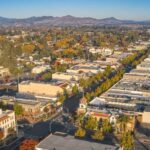In a significant development reflecting the ongoing discourse around police accountability, a former officer of the Antioch Police Department has been convicted of multiple civil rights abuses, underscoring troubling practices within the department. The verdict comes amid rising scrutiny of law enforcement agencies across the nation, prompting calls for reform and a fundamental shift in police culture. In response to the conviction, the Antioch Police Department is now embarking on a comprehensive initiative to revamp its internal policies and foster a culture of transparency and respect for civil rights. This article delves into the details of the case, the impact on the community, and the department’s proposed reforms aimed at restoring public trust and ensuring accountability.
Ex-Antioch Officer Faces Justice for Civil Rights Violations
In a landmark case that has captivated the local community, a former officer from Antioch has been found guilty of multiple civil rights violations, marking a significant step towards accountability in law enforcement. The jury determined that the officer engaged in discriminatory practices and excessive use of force during incidents while on duty. This verdict is seen as a beacon of hope for residents who have long called for transparency and justice within their police department. The verdict came amid a wave of protests advocating for reform and systemic change, reflecting a growing demand for police accountability across the nation.
In response to this conviction, the Antioch Police Department is making concerted efforts to revamp its internal culture and restore public trust. A series of initiatives are being proposed, including:
- Enhanced Training: Mandatory civil rights and community relations training for all officers.
- Community Engagement: Regular town hall meetings to foster dialogue between the department and community members.
- Policy Review: Comprehensive assessments of existing use-of-force policies to ensure they align with best practices.
These steps reflect a recognition that change is necessary for rebuilding trust. As the department grapples with its past, the focus is now on how to ensure such violations do not occur again, hoping to transform the narrative and culture surrounding law enforcement in Antioch.
Department’s Efforts to Transform Culture and Restore Community Trust
The recent conviction of a former Antioch police officer on civil rights abuses has prompted significant introspection and reform within the department. In response to the eroded trust between law enforcement and the community, department leaders have implemented a series of initiatives aimed at fostering transparency and accountability. These measures include:
- Community Engagement Forums: Monthly meetings designed to allow residents to voice their concerns directly to department officials.
- Policy Revisions: A thorough review and update of existing policies to ensure they align with best practices for civil rights and procedural justice.
- Training Programs: Enhanced training for officers focusing on de-escalation techniques, diversity, and building positive community relationships.
Additionally, a new oversight committee has been established to monitor departmental practices and ensure community perspectives are included in decision-making processes. This committee will serve as a bridge, linking residents with law enforcement leaders to facilitate open dialogue and collaboration. To further support these efforts, the department is actively seeking feedback through anonymous surveys to gauge public opinion and identify areas for improvement. The commitment to institutional change is critical as the Antioch police work diligently to foster a safer and more trusting environment for all.
Recommendations for Future Training and Accountability in Policing Practices
To address the pressing need for reform in policing practices, it is essential that departments implement comprehensive training programs focused on community engagement, de-escalation techniques, and cultural competency. Investing in these areas can significantly improve interactions between officers and community members, fostering an atmosphere of trust and respect. Furthermore, ongoing education should also emphasize the importance of ethics and accountability to prevent misconduct and civil rights violations. Departments must commit to creating mandatory training for all personnel that incorporates the latest developments in law enforcement practices alongside feedback from the communities they serve.
In addition to enhanced training, establishing a robust accountability framework is crucial for enforcing ethical standards within police departments. Strategies that could be adopted include:
- Implementation of body-worn cameras to promote transparency during interactions.
- Regular performance evaluations that incorporate community feedback and incident reviews.
- Creation of independent oversight boards to investigate allegations of misconduct and ensure officers are held accountable.
By prioritizing both training and accountability, police departments can not only work towards reforming their internal culture but can also rebuild trust within the communities they serve.
In Conclusion
As the Antioch Police Department grapples with the aftermath of the recent conviction of a former officer for civil rights abuses, the case serves as a stark reminder of the urgent need for reform within law enforcement agencies. The department’s ongoing efforts to revamp its culture and restore public trust will require a steadfast commitment to accountability, transparency, and community engagement. Stakeholders, including city officials, community leaders, and residents, must come together to ensure that lessons learned from this difficult chapter not only lead to meaningful change but also foster a more just and equitable environment for all. As Antioch moves forward, it remains to be seen how effectively these initiatives will address the deep-rooted issues that have long challenged the relationship between law enforcement and the communities they serve. The road ahead is undoubtedly complex, but it is one that could ultimately define the future of policing in this community.









